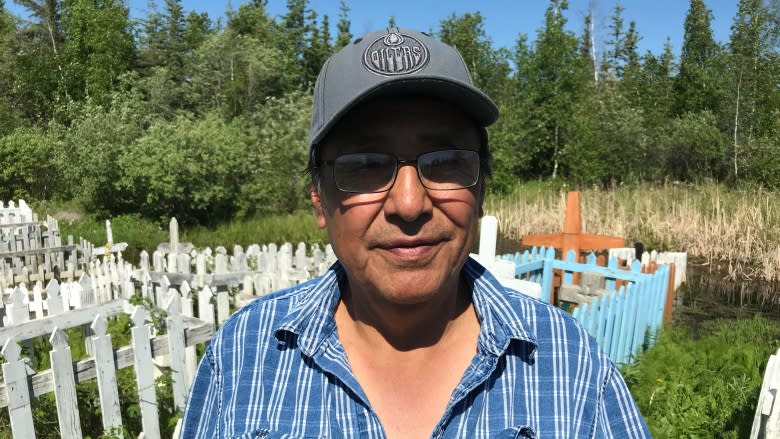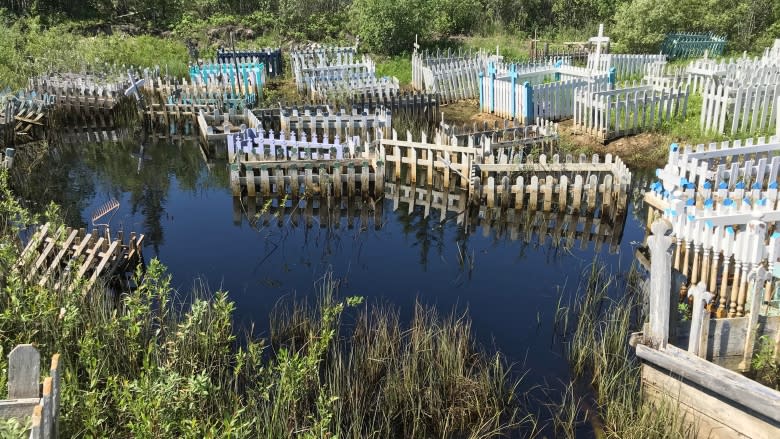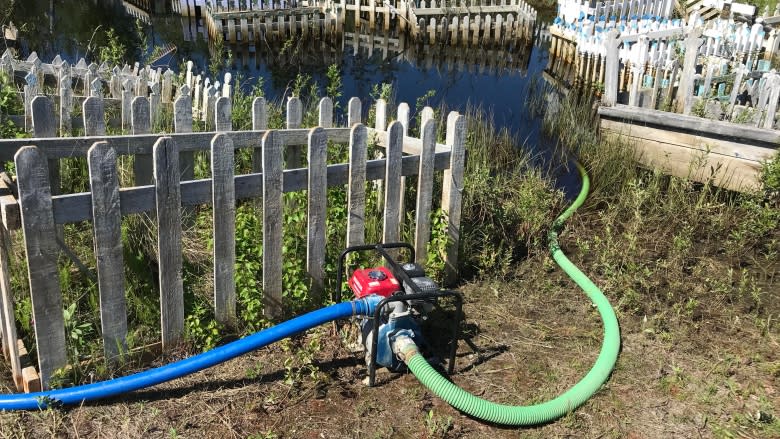'I don't know where she is': Flooding at Behchoko cemetery leaves graves under water
William Mantla walks among the graves in the cemetery in Behchoko, N.W.T., but he can't find the two he wants to see — his sister's and grandfather's.
Their graves are two of many that are swamped from the annual spring melt. The water is nearly half a metre deep in some areas, rotting the wooden cribs that mark the graves.
"We don't hardly know where they are buried," Mantla said, pointing to the flooded section. "I know my sister is buried on this side, but they moved the crib, so I don't know where she is."
The water has been coming back year after year for about 20 years, but no one is certain where it comes from, so there hasn't been a permanent solution, Mantla explained. A few years ago he suggested a ditch be built to move the water away, but it didn't get built.
"The ground is sinking," he said.
"I'm not sure what happened; maybe it's the permafrost? Maybe the water's coming from underground? We don't know where it's coming from."
There have been a number of attempts at fixing the problem over the years.
One year, the community government moved the grave markers, filled the sunken area with dirt and gravel and tried to put the markers back. But some — like Mantla's sister's — never made it back.
This year, the Behchoko community government installed pumps to get rid of the worst of the flooding, but the water is expected to keep coming back, said Behchoko Chief Clifford Daniels.
Community officials are looking at the problem and finding a solution to divert the water permanently.
"We figure there's an underground water system that keeps coming back. We're going to see what other ways we can tackle this, keep it from reoccuring," Daniels said.
"We're going to have to figure out where the water is coming from."
For Mantla, that's a start.
He wants to see the community come together later this summer, after the water recedes, to re-mark the graves. That way, he and others can return to pray for their loved ones.
"We have to know whose family is buried here," he said. "We have to."




